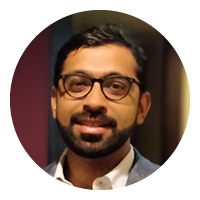Short description about presentation:
A significant population of the world lives within the fertile river valleys and is affected directly by the quality of water. Increased urbanization and industrialization has led to a degradation of water quality in recent decades due to contaminants from several sources - industrial, agricultural and anthropogenic. Traditional methods that include time consuming lab analysis from point measurements often lose out on event detection and fail to establish a complete picture of the health of the river. Aquatic life and the environment are the worst sufferers. Recent advances in automated, multi-parametric sensor platforms, and the emergence of Cloud based storage and data analytics have enabled the ability to obtain geo-tagged, time-stamped data at high spatial and temporal resolution over large bodies of water.
Our novel approach lies in developing a scalable, low-cost real-time sensing network using mobile sensing platforms carried around pre-selected routes to obtain high frequency temporally and spatially varying water quality data. We will describe our results from such an end-to-end publicly accessible cyberphysical sensing network that we have developed for mapping stretches of major rivers across India. Currently, we are monitoring parts of River Ganga, Yamuna and Godavari on a regular basis. This approach has also been used to monitor some lakes in Bangalore. We will describe the results of this pilot experiment that has been in operation for a couple of years, address its scalability and its potential impact towards pinpointing pollution sources, ensuring regulatory compliance, and benchmarking remediation measures. We will also present a comparative study for this type of novel sensing methodology across different locations in India. Additionally, we will present preliminary results on establishing correlations between various water quality parameters within themselves and with socio-economic variables including health, prosperity, etc.
